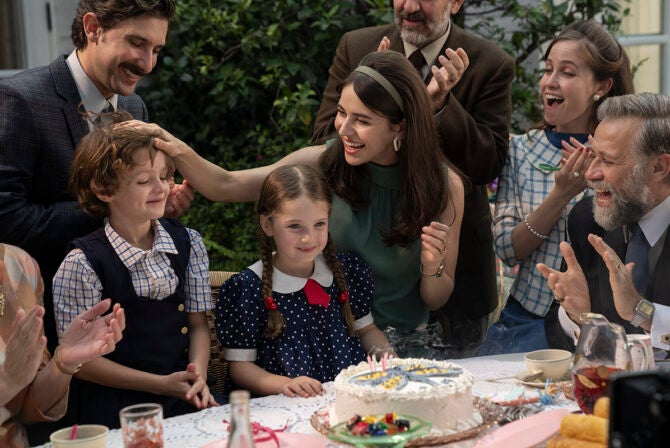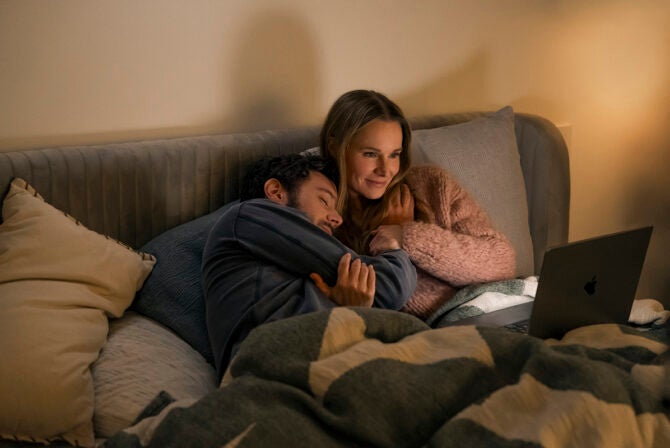For the first time in six years, there was a guard outside our shul on Shabbat. It’s not one of the big historic synagogue buildings in Center City Philadelphia, which has, like many large synagogues, been employing security services for years. It’s a small–but growing–rabbi-led minyan that meets on top of a store. We have an awning with our name, but there aren’t any city signs pointing the way to our modest quarters. And yet, this week, there was a guard posted outside.
I grew up in one of those massive shuls; Toronto seems to specialize in them. I grew up saying hi to someone as I walked in the doors every week. Usually that someone sat behind a reception desk, or in a large lobby, or stood inside a set of double doors that leads the way to the epic sanctuary. Our little former dance studio boasts no such entrance; the guard was standing on the street outside. Without thinking, I automatically said hi as we opened the door, reverting immediately to my childhood experience. I’m used to it. My kids are not.
They were full of questions. Of course they were; not only was this new to the shul they’d been attending their entire lives, the shul into which they were all born, it was new to them more broadly. Why, they wondered, would a shul need a guard? Why would anyone want to threaten Shabbat services? In what way were Jews vulnerable?
These questions felt particularly poignant this past Shabbat, just before Martin Luther King, Jr. Day, a day devoted to the legacy of someone who fought for the right of anyone in the United States to be able to move about freely and to be treated equally, with no fear. They felt particularly poignant this past Shabbat, when we read about Moses pleading with Pharaoh to release the Israelites from enslavement. They felt particularly poignant this past Shabbat, when people the world over were standing together in the name of freedom of the press, even if some questioned its products.
And, of course, these questions felt particularly poignant because of the answer, or one of the answers: that just prior to Shabbat the week before, Jews were murdered while shopping for kosher food. Jews were murdered for being Jews.
My kids, especially the oldest, know something about Jewish oppression and anti-Semitism. We work hard to emphasize the joy in Jewish holidays, and celebrate the advantages of our religious and cultural identity. But we are also invested in history and collective memory, and the narratives of so many of our events rest on persecution. We tell those stories too. And we teach the parsha (Torah portion), and we think about how these ideas may resonate today. We don’t have to work hard to get there: The weekly Torah portion has much to teach about hachnasat orchim (welcoming guests) and bikur cholim (visiting the sick) and tzedakah (charity/justice) and so many of the other social justice principles that we are trying to instill. And while we are careful to note the differences between various kinds of oppression, and we are careful to talk about why, for example, the experience of the slaves in Egypt differed from the experience of the slaves in the United States, and the differences in how that ramifies today, we can use the Jewish experience to discuss racism and discrimination. And we do, or we do our best.
But until last week, our kids have never had direct experience with how these narratives of anti-Semitism might affect them. They have, sadly, seen other forms of racism in action. We spoke to our eldest about Ferguson, and Eric Garner, and why some of her friends’ parents will not teach their kids to go to the police if they need help. At 5.5, she’s a bit young for long conversations about white privilege and intersectionality, but, like all other kids her age, she sees skin color and is very busy sorting the world into categories that make sense to her. We don’t want her to think that race is something secret, furtive, something we don’t talk about. So we talk about it, in terms we think she can understand. (As much as anyone understands anything about race in this country right now.)
We hadn’t yet spoken to her about the anti-Semitism in the world today. Maybe I was living in denial, still clinging to the promise of a better, more tolerant future. Maybe it was a heightened sensitivity to the lack of safety that others experience. Maybe I didn’t want to undermine her sense of joy in her religion, the celebration that accompanies her experience of Judaism. Maybe I simply didn’t want to scare her.
I still don’t want to scare her, not exactly. And so my heart breaks, because I think she needs to be more aware. She needs to be a little more sensitive. She needs, tragically, to be a little bit scared. Not in a day-to-day way; she’s not living under threat. She can walk around safely and proudly, being public about her religion and her observance. No one is coming to attack her.
But there is a guard outside our shul. And I’m glad he’s there.
It’s time for another conversation.







